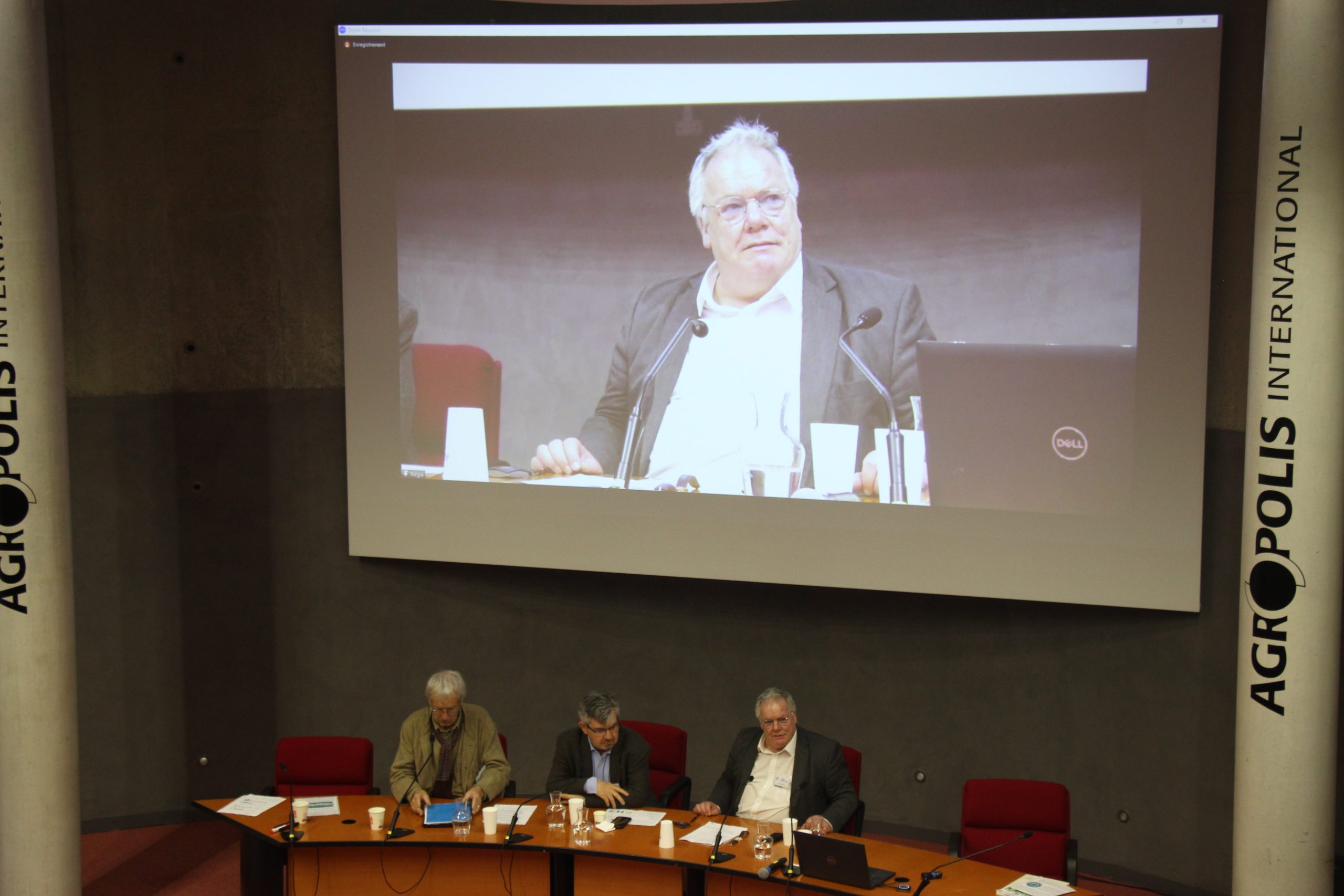Recently, institutional members of the Agroecology TPP came together to discuss progress and set priorities for the future in the first Members Forum meeting – an annual gathering in which representatives of key stakeholder groups and institutional members of Agroecology TPP examine the latest research findings and key knowledge and implementation needs, and address other pressing issues and topics.
Held on 22-23 February at the Agropolis International headquarters in Montpellier, France, but also catering for online audience, the two-day event was the first of its kind due to COVID-19-related restrictions experienced over the last couple of years, which made it difficult for the members forum to meet in-person and engage in group debates and discussions.
Although thought of as a member-only meeting mainly attended by representatives from member institutions, including research and donor organizations as well as civil society, the Members Forum meeting also included a session open to Agroecology TPP’s Community of Practice (CoP), which delved into Agroecology TPP’s current project portfolio and results so far.
Day 1 of the event looked back at some of the key achievements and challenges of Agroecology TPP’s projects, delving into the latest findings. In particular, the in-depth sessions on the Viability and Fall Armyworm (FAW) projects allowed for a detailed presentation of the first emerging results and an extensive debate between Forum members. Day 2, on the other hand, looked ahead to the future, with an emphasis on three priority topics: (1) the science-policy interface; (2) the future development of priority domains and project portfolio; (3) and the role of Agroecology TPP in capacity development and education related to a transdisciplinary co-creation of knowedge.

Key highlights and decisions from the meeting include:
- In his opening remarks, Fergus Sinclair, one of Agroecology TPP’s Co-convenors and Chief Scientist at CIFOR-ICRAF, stressed that “the Agroecology TPP is transdisciplinary and involves all stakeholders through co-creation, all the while working on the 13 HLPE principles in support of local innovation.” He then explained how the Agroecology TPP embeds the four elements of transdisciplinarity*: “Firstly, it is problem-focused and hence addressing global challenges, but doing so in local contexts. Secondly, it is solution-oriented, or all about innovation on the ground. Thirdly, it involves all stakeholders in the research process. And lastly, it is reflexive on methodology in order to improve and accompany change.”
- The Agroecology TPP’s comparative advantage and role are best described in relation to the three words in its full title (The Transformative Partnership Platform on Agroecological Approaches to Building Resilience of Livelihoods and Landscapes), namely:
Transformative: Facilitating discussion and co-learning on agroecology and transdisciplinary transformative research among members and partners;
Partnership: Advancing collaborative work between partners, including easing administrative processes;
Platform: Compiling and sharing information and materials on methods, approaches, skills, and lessons learned in relation to agroecological, transdisciplinary and transformative research as well as how to do research differently.
- An agreement was made among Forum members to meet more regularly in targeted sessions to ensure coherence across projects and partners. Consideration is also given to organizing specific sessions for external stakeholders, to assure inclusivity.
- A consensus was reached on a greater need to incorporate livestock and pollination as well as more social aspects into domains and projects, such as equity, social inclusion, and gender.

Project-specific video presentations from an open session of the Members Forum meeting are available on Youtube here.
* As per the HLPE report’s definition of transdisciplinarity:
“Transdisciplinary science transcends disciplinary boundaries and seeks to generate transformative outcomes by having: a problem focus (research originates from and is contextualized in ”real-world” problems); an evolving methodology (the research involves iterative, reflective processes that are responsive to the particular questions, settings and research groupings involved); and collaboration (including among transdisciplinary researchers, disciplinary researchers and external actors with interests in the research) (Russel et al., 2008). This has been interpreted in agroecology to involve integration of different academic disciplines as well as diverse forms of knowledge, including experiential, cultural and spiritual (Méndez et al., 2015). Transdisciplinary science differs from ”multidisciplinary” science, where people from different disciplines work together, each drawing on their disciplinary knowledge in an additive rather than integrative way, and from ”interdisciplinary” science, where knowledge and methods from different disciplines are integrated, encompassing a synthesis of approaches but not necessarily involving other stakeholders or focus on generating transformative outcomes” (Petrie, 1992).

